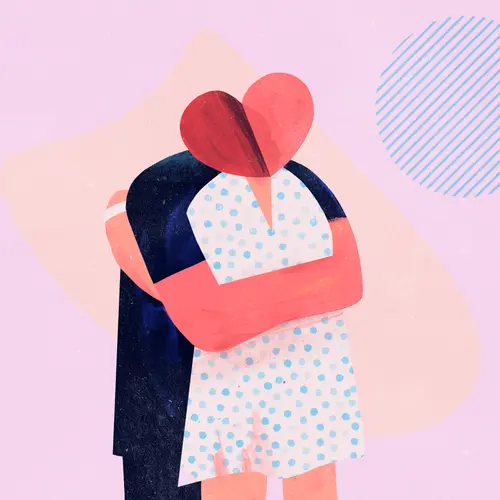When colon cancer works its way into the liver, you may not get any clear signs that it's happened. But if you do, the symptoms can range from pain and itching to tiredness and hiccups.
Even if they can't cure the cancer, treatments like surgery, radiation, and chemotherapy can often give you relief. And if they don't get it done, there's still a lot more you can try.
Find Ways to Ease Pain
Cancer can cause the liver to grow and bulge into surrounding body parts, leading to pain and discomfort. Once your doctor understands where your pain is, what it feels like, and how long it lasts, you can get the right medicine, like painkillers or steroids.
You can also try other approaches to handling pain, such as acupuncture, hypnosis, and relaxation techniques. And you may need more than one thing. Work with your doctor to find the right mix for you.
Eat When You Don't Feel Like It
You might lose your appetite and not be in the mood for dining, but you need to eat to keep your energy up.
Try some of these tips:
Go small. Instead of three big meals, try smaller ones or have snacks every few hours.
Make it count. Choose foods high in protein and calories, like nuts, eggs, and ice cream. You can add butter, cream, honey, or sugar to give your snacks an extra boost.
Treat yourself. Eat more of your favorite foods to keep you coming back for more.
Get Relief for Bloating and Discomfort
When your liver swells and isn't working like normal, you may get fluid buildup in your belly. Not only does that make you bloated, it can also affect your breathing and desire to eat.
Your doctor may use a needle to get rid of the fluid. For a longer-term fix, they may also put a small tube under your skin that can drain it more often. You might also need to take water tablets, called diuretics, to help prevent buildup in the first place.
Keep Your Temperature in Check
Sometimes advanced cancers can throw off your body temperature. Try to dress in layers, and talk with your doctor about ways to deal with it.
Get Rid of Itchiness
Sometimes a liver tumor blocks your bile duct. It's a passageway that carries bile, a fluid that plays a role in digesting fats. The blockage can cause bile to back up into your blood and lead to jaundice, which gives your skin a yellowish tint and can make you itchy.
Depending on where the cancer is, you might be able to get a small tube, called a stent, to keep the bile duct open. If not, your doctor might give you drugs to ease the itching.
Try to avoid things that make the itching worse, such as:
- Direct sunlight
- Hot baths
- Spicy foods
- Soaps that dry out your skin
You can also shower often and use emollients -- non-cosmetic moisturizers.
Stop the Hiccups
A swollen liver can press on a nerve that goes to your diaphragm -- a muscle that helps push out your lungs when you breathe. This can give you the hiccups. Your doctor can suggest medicine to keep them at bay.
Tame Your Upset Stomach
A number of medicines can help with an upset stomach. Antiemetic drugs can ease nausea.
You may also want to:
- Ask other people to make food for you, if cooking makes you queasy.
- Avoid drinking a lot right before you eat.
- Go with warm or cold foods, if smell is a trigger (hot foods have stronger smells).
- Eat small amounts, and chew your food well.
- Stick with bland foods, like crackers or plain toast, when your symptoms are at their worst.
- Take small sips of drinks, not big gulps.
- Try foods and drinks with peppermint or ginger.
Manage Your Fatigue
When you're sapped of energy, it's all about working within your limits:
Ask for help. If you feel any guilt about it, remember that friends and family want to chip in but often don't know how. Do them a favor and let them know what you need.
Get moving. It sounds like the opposite of what you need when you're wiped out, but exercise can give you a jump-start. A short walk or even gentle exercises in your bed can make a difference.
Pace yourself. Whenever possible, save your energy for the things you want to do the most.
Set time to rest. You don't have to sleep, but scheduling regular times to just sit or lie down can help you recharge.
Track your energy levels. It will help you do activities you might be avoiding because they drain your strength. And it'll show when you have the most energy, so you can use that time for the things you really enjoy.

